#SYM Thomas
Text
John: Time sensitive question how to flirt with boys
Peter: Throw rocks at he.
Thomas: Hot dog.
Jacob: Kill him.
John: Thanks guys.
#Saint Young Men#Saint Oniisan#SYM John#SYM Peter#SYM Thomas#SYM Jacob#Incorrect Quotes#Incorrect Saint Young Men Quotes#Incorrect Saint Oniisan Quotes#Incorrect Saint Young Men#Incorrect Saint Oniisan#source unknown
17 notes
·
View notes
Text












#kin list#monster high#twyla boogieman#star vs the forces of evil#jackie lynn thomas#mtv downtown#serena#sym-biotic titan#kristin#clone high#cleopatra#invader zim#gaz membrane#avatar the last airbender#mai#regular show#eileen#ever after high#cerise hood#mirage#the incredibles#sailor neptune#sailor moon#bojack horseman#diane nguyen#kinlist#kin#kins#kinnie#literally me
44 notes
·
View notes
Text
ARTISTS I LIKE*
Ana Mendieta. William H. Johnson. Deborah Roberts. Amy Sherald. Lynette-Yiadom Boakye. Toyin Ojihi Odutola. Delphine Desane. Mickalene Thomas. Faith Ringold. Lorna Simpson. Kerry Mae Weems. Martine Syms. Kerry James Marshall. Henry Taylor. Henry Matisse. Juan Gris. Pablo Picasso. Sol Lewitt. Jackson Pollock. Geral Richter, Clyfford Still. Olga Abizu. Fritz Scholder. Joy Mitchell. Andy Warhol. Cy Twombly. Frida Kahlo. Elaine De Kooning, Roy Litchenstein. Henri Rosseau. Georgia O’Keefe. Diego Riviera. Marina Abromovic. Joe Colombo. Günter Ferdinand Ris. Pierre Paulin. Verner Panton. Olafur Eliasson
2 notes
·
View notes
Note
🎵🎵 nene AND dirk's playlist



Nene and I actually decided to do each others songs for this.
🎵 Song to Neos ... Nene's Playlist Edition
Song: There's Something Happening by Jack Stauber
Names:
Peppy, Pippy, Scratch, Chorus, Medi, Molly, Thomas, Tom, Star, Love, Wed, Brook, Mary, Dear, Charm, Key, Glare
Pronouns:
Some/Thing/Thingself, Pill/Pills/Pillself, Star/Stars/Starself, Sy/Sym/Symself, Bea/Beau/Beautiself, Wed/Weds/Wedself, Ring/Rings/Ringself, Time/Times/Timself, Note/Notes/Noteself, Key/Keys/Keyself, Ruin/Ruins/Ruinself






Dirk has such... A fascinating array of songs on his playlist.
🎵 Song to Neos ... Dirk's Playlist Edition
Song ;; Don't Cha by The Pussycat Dolls
Names
Doll, Lady, Sis, Sizzie, Sizzle, Belle, Fare, Pop, Poppy, Summer, Diamond, Gem
Pronouns
Doll/Dolls/Dollself, Hot/Hots/Hotself, Gir/Girl/Girlself, Pop/Pops/Popself, Dance/Dances/Danceself, Lov/Love/Loveself, Ha/Hapi/Happyself, Spot/Spots/Spotself, Wish/Wishes/Wishself, Fli/Flir/Flirtself
Titles
The Lover, The Yearning, The one who Yearns, The Jealous One, The Wishing One, The Pretty Girl, The Doll who is Pretty, The Summertime Girl
#‹ 📻 › .. Your Host ;; Nene#‹ 📻 › .. Your Host ;; Dirk#‹ 🎧 › .. Now Playing ;; Songs to Neos#names#neopronouns#titles#nounself pronouns
3 notes
·
View notes
Text
Commons Vote
On: Finance (No. 2) Bill: Third Reading
Ayes: 215 (98.6% Con, 0.9% Ind, 0.5% DUP)
Noes: 19 (94.7% SNP, 5.3% PC)
Absent: ~416
Likely Referenced Bill: Finance (No. 2) Act 2010
Description: A Bill to grant certain duties, to alter other duties, and to amend the law relating to the National Debt and the Public Revenue, and to make further provision in connection with finance.
Originating house: Commons
Current house: Unassigned
Bill Stage: Royal Assent
Individual Votes:
Ayes
Conservative (211 votes)
Aaron Bell
Alan Mak
Alberto Costa
Alec Shelbrooke
Alex Burghart
Alex Chalk
Alicia Kearns
Alok Sharma
Amanda Milling
Andrew Griffith
Andrew Jones
Andrew Lewer
Andrew Murrison
Andrew Percy
Andrew Selous
Andy Carter
Angela Richardson
Anna Firth
Anne Marie Morris
Anne-Marie Trevelyan
Anthony Browne
Antony Higginbotham
Ben Everitt
Ben Spencer
Ben Wallace
Bernard Jenkin
Bill Wiggin
Bim Afolami
Bob Blackman
Bob Seely
Brandon Lewis
Caroline Ansell
Caroline Nokes
Charles Walker
Cherilyn Mackrory
Chris Clarkson
Chris Grayling
Chris Green
Chris Philp
Conor Burns
Craig Tracey
Craig Williams
Damian Hinds
Daniel Kawczynski
Danny Kruger
David Davis
David Duguid
David Jones
David Rutley
David Simmonds
Dean Russell
Dehenna Davison
Derek Thomas
Desmond Swayne
Duncan Baker
Edward Argar
Edward Leigh
Elizabeth Truss
Elliot Colburn
Esther McVey
Felicity Buchan
Fiona Bruce
Gagan Mohindra
Gareth Bacon
Gareth Davies
Gareth Johnson
Gary Sambrook
Gavin Williamson
Geoffrey Clifton-Brown
Gillian Keegan
Graham Brady
Graham Stuart
Greg Hands
Greg Smith
Guy Opperman
Harriett Baldwin
Heather Wheeler
Helen Whately
Holly Mumby-Croft
Huw Merriman
Iain Duncan Smith
Iain Stewart
Jack Brereton
Jack Lopresti
Jackie Doyle-Price
Jacob Rees-Mogg
Jacob Young
James Cartlidge
James Cleverly
James Davies
James Duddridge
James Sunderland
James Wild
Jane Hunt
Jane Stevenson
Jeremy Quin
Jerome Mayhew
Jo Churchill
John Glen
John Howell
John Lamont
Jonathan Djanogly
Jonathan Gullis
Julia Lopez
Julian Lewis
Julian Smith
Julian Sturdy
Justin Tomlinson
Katherine Fletcher
Kelly Tolhurst
Kemi Badenoch
Kevin Hollinrake
Kieran Mullan
Kit Malthouse
Laura Farris
Laura Trott
Lee Rowley
Leo Docherty
Lia Nici
Liam Fox
Lisa Cameron
Louie French
Lucy Frazer
Luke Hall
Marcus Jones
Mark Fletcher
Mark Francois
Mark Garnier
Mark Logan
Martin Vickers
Matt Hancock
Matt Warman
Matthew Offord
Mel Stride
Michael Ellis
Michael Fabricant
Michael Gove
Michael Tomlinson
Mike Freer
Mike Wood
Mims Davies
Neil O'Brien
Nick Fletcher
Nick Gibb
Nicola Richards
Nigel Huddleston
Paul Beresford
Paul Holmes
Paul Howell
Pauline Latham
Penny Mordaunt
Peter Aldous
Peter Bottomley
Philip Dunne
Philip Hollobone
Priti Patel
Ranil Jayawardena
Rebecca Harris
Rebecca Pow
Rehman Chishti
Richard Bacon
Richard Drax
Richard Fuller
Rob Butler
Robbie Moore
Robert Buckland
Robert Courts
Robert Goodwill
Robert Halfon
Robert Largan
Robert Syms
Robin Millar
Robin Walker
Royston Smith
Sajid Javid
Sally-Ann Hart
Saqib Bhatti
Sara Britcliffe
Sarah Dines
Scott Mann
Selaine Saxby
Shailesh Vara
Sheryll Murray
Simon Baynes
Simon Clarke
Simon Fell
Simon Hart
Simon Hoare
Simon Jupp
Stephen Metcalfe
Steve Baker
Steve Brine
Steve Tuckwell
Stuart Andrew
Suzanne Webb
Theo Clarke
Theresa May
Theresa Villiers
Thérèse Coffey
Tobias Ellwood
Tom Hunt
Tom Pursglove
Tom Randall
Tom Tugendhat
Tracey Crouch
Vicky Ford
Victoria Atkins
Victoria Prentis
Wendy Morton
Will Quince
William Cash
Independent (2 votes)
Mark Menzies
William Wragg
Democratic Unionist Party (1 vote)
Jim Shannon
Noes
Scottish National Party (18 votes)
Allan Dorans
Amy Callaghan
Angela Crawley
Anne McLaughlin
Brendan O'Hara
Chris Law
Chris Stephens
David Linden
Deidre Brock
Joanna Cherry
John Nicolson
Kirsty Blackman
Marion Fellows
Owen Thompson
Peter Grant
Philippa Whitford
Richard Thomson
Stewart Malcolm McDonald
Plaid Cymru (1 vote)
Hywel Williams
1 note
·
View note
Text
The PSYCHOLOGICAL tension between the motivations of Nicolas Tesla and Thomas Edison
(AC / DC)
metaphorically embody the by fantasizing conspiracy theories coded and by Karl Friston explored psychological "free energy principle" regarding Rene Girards mimetic meanings of reputation managing "deCOHERENCE" of each-other contrasting 🔍Freud about repressions 📚shadow work by Carl Jung:
Most scientific innovation and functionality of collective management is inhibited by us attaching our subjective identity and aspirations to via mimetic in-group & out-group emotions polarising sense-making symbols🎅 of reductionistic explanatory constructs or preferences
that thus tend to loose touch with that statistically most efficient solutions tend to be a synthesis of "contrasting" symbolic constructs (thesis vs antithesis)
as seen via similar pattern of
A) symbiotic use of AC vs DC electricity / democracy
B) ideological reputation managing contrast of hydrogen vs electro engines whose most efficient use seems not "current" "tesla" but a for evolving circumstances optimising combination (synthesis) of both
C) out of via vain err in-group 📚"propaganda edward bernays" bra(i)nde(a)d social imbalances (as explored by Galbraith just geopolitically) arising conflicts like agrarian🍞☣️🥖 Ukraine 🇺🇦 & its for electric vehicles needed (& similar like via Africa's bloodmines in our devalued attention shadow of group-narcissism grabbed) Lithium in Donetsk: 🔍shell make the future vaynerMedia ...via "shell"ling? 🎶Shchedryk Carol of Bells
D) metaphorical "Schroedinger cat experiment" of C-19 vaccine side-effects blurring with long-covid as both sym are embedded in same biological mechanisms (spike proteins) with same remedies (like Nattikonase)
and their attention booty🍑 (blind spots) of with the our mind- and motivations-distorting fictional status mimetically charged reductionistic "deCOHERENCE"🌜🛐🐑💤🐑 of meaning-makings' interpretational metaphorical "quantum world" causal🌞 ambiguity of our linguistic and numeric symbolic🎅 convergerted🧭❤️🧭 "sense"-making mind constructs🌜 of Queen's western culture
🎶You shook me all night🌜🛐🐑💤🐑 long - AC/DC
🎵Ben you took me
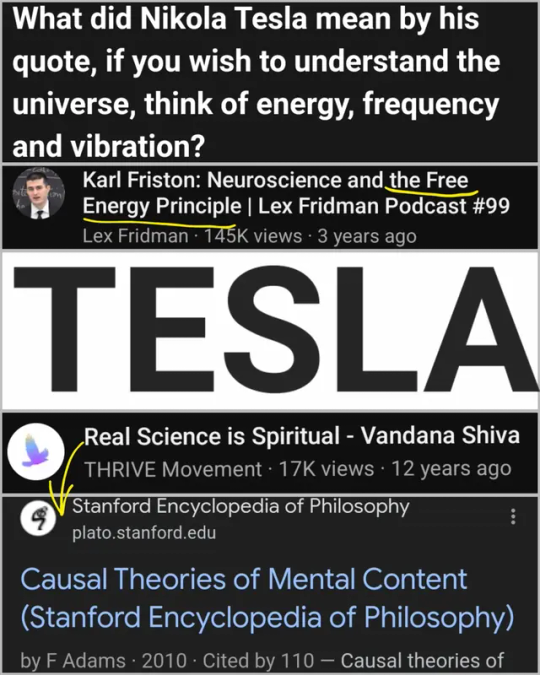

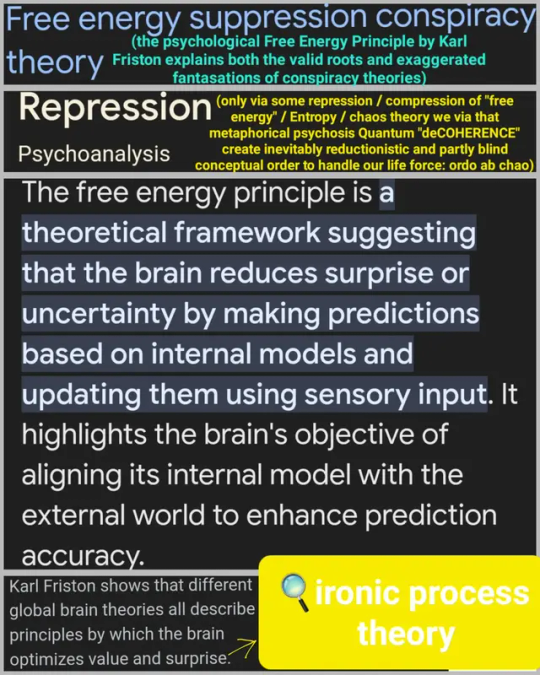
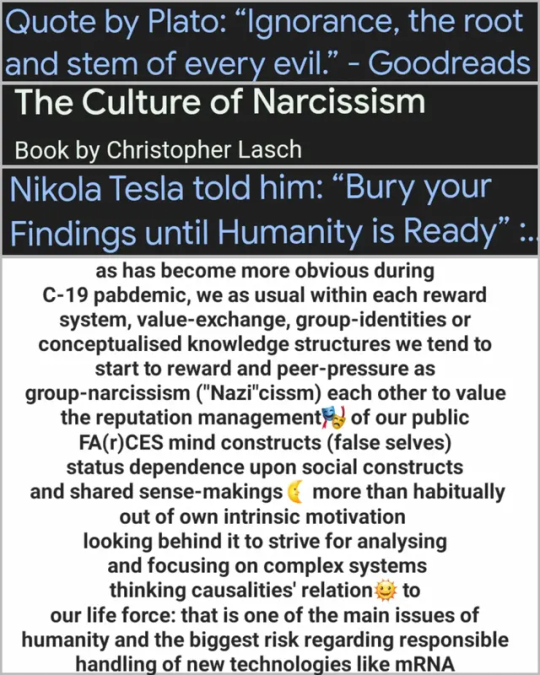
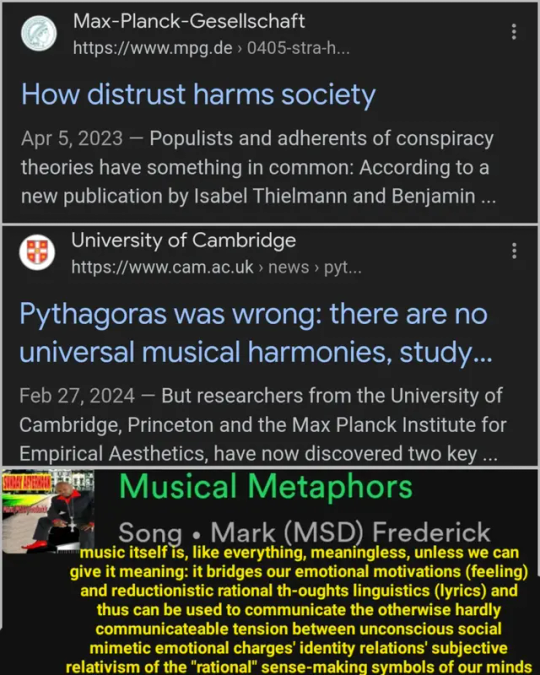
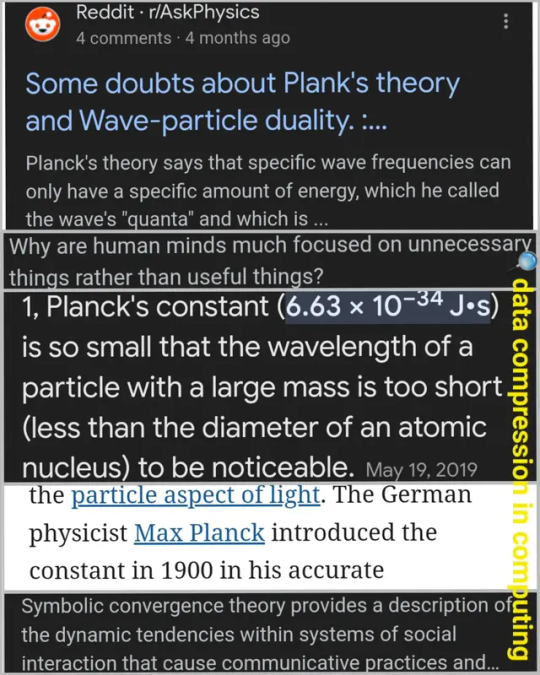
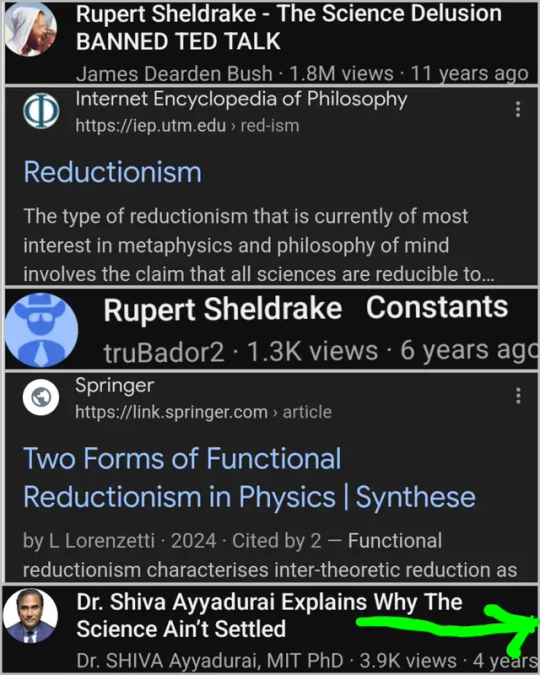
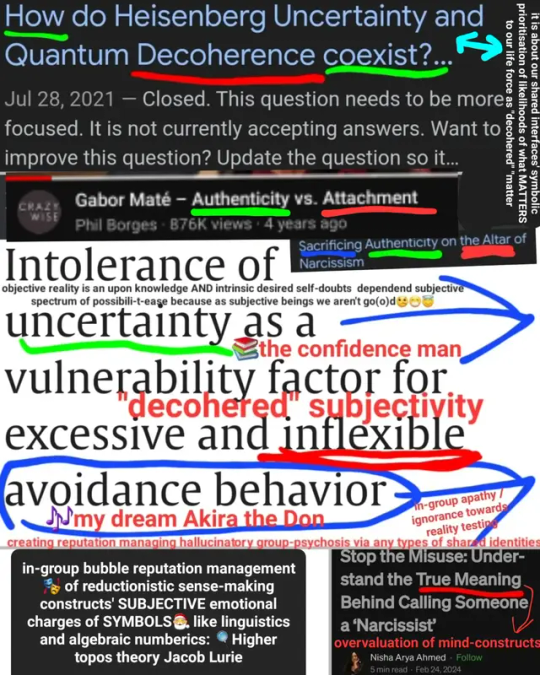
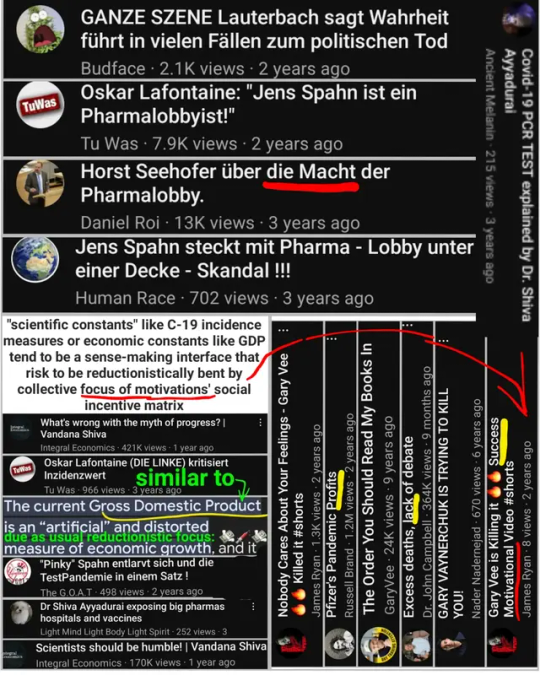

0 notes
Photo



The Big Job | Gerald Thomas | 1965
Edina Ronay, Sylvia Syms
13 notes
·
View notes
Text
My Ideal Crew for a Hellboy Animated Series (for adults)
Executive Producer: Mitch Watson

Composer: Jeremy Zuckerman

Head Writer: Darrick Bachman

Voice Director: Jack Fletcher

Head Character Designer: Thomas Perkins

Supervising Director: David Hartman

#Fancast#Hellboy#hellboy animated#mitch watson#Beware the Batman#Scooby-Doo Mystery Incorporated#Jeremy Zuckerman#Avatar: the Last Airbender#Scream the series#Darrick Bachman#Samurai Jack#Sym-Bionic Titan#Jack Fletcher#Spawn the animated series#Sonic Boom#Thomas Perkins#avengers earth's mightiest heroes#Green Lantern: TAS#David Hartman#Transformers Prime#Transformers Robots in Disguise
73 notes
·
View notes
Text
PLEASE VIDEO EDITORS COULD ONE OF YOU DO ME A FAVOR AND CREATE A LOOP OF DECEITS “WOOOOO”PLEASEI LOVE YOU THANKS
#sanders sides#deceit sanders#ts deceit#tw deceit#thomas sanders#sym deceit#sympathetic deceit#ts spoilers
17 notes
·
View notes
Conversation
Jesus: How long did it take for you guys to start liking me?
Buddha: Couple weeks.
Thomas: Six months.
Lucifer: Jury's still out.
#Saint Young Men#Saint Oniisan#SYM Jesus#SYM Buddha#SYM Lucifer#SYM Thomas#Incorrect Quotes#Incorrect Saint Young Men Quotes#Incorrect Saint Oniisan Quotes#Incorrect Saint Young Men#Incorrect Saint Oniisan#Source: b99#Source: Brooklyn 99
27 notes
·
View notes
Photo




The Big Job (1965) Gerald Thomas
March 28th 2021
#the big job#1965#gerald thomas#sid james#sylvia syms#dick emery#joan sims#lance percival#jim dale#edina ronay#deryck guyler#carry on crooks
1 note
·
View note
Photo
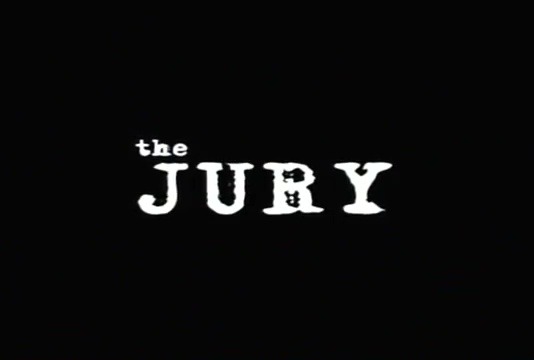




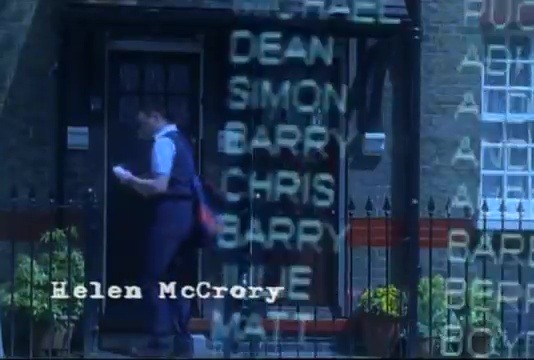


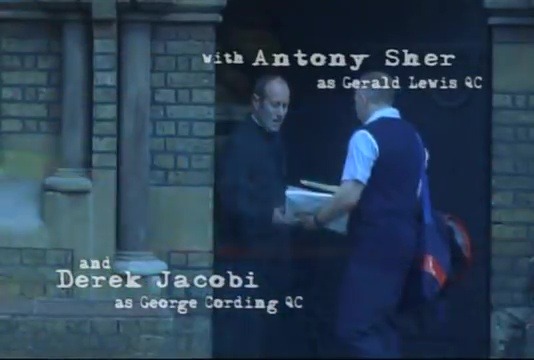

The Jury - ITV - February 17, 2002 - March 18, 2002
Legal Drama (11 episodes)
Running Time: 60 minutes
Stars: (Season 1)
Gerard Butler as Johnnie Donne, Juror #1
Helen McCrory as Rose Davies, Juror #2
Michael Maloney as Peter Segal, Juror #3
Nina Sosanya as Marcia Thomas, Juror #4
Nicholas Farrell as Jeremy Crawford, Juror #5
Sylvia Syms as Elsie Beamish, Juror #6
Paul Reynolds as Warren Murphy, Juror #7
Stuart Bunce as Charles Gore, Juror #8
Gillian Barge as Eva Prohaska, Juror #9
William Hoyland as Hector, Juror #10
Connor McIntyre as Derek Batey, Juror #11
Sarah-Louise Young as Jessica Garland, Juror #12
Antony Sher as Gerald Lewis, Q.C. Counsel for the Prosecution
Sonnell Dadral as Duvinder Singh, the Accused
Derek Jacobi as George Cording, Q.C. Counsel for the Defence
Supporting cast
John Duttine as Mark Waters
Steven Emrys as Mr. De Jersey
Fiona Gillies as Fiona Crawford
James Hayes as Father Gervase
Tim Healy as Eddie Fannon
Tiana Paige Johnson as Joy Thomas
Claire Neilson as Eleanor Colchester
Joanne Pierce as Marion Segal
Billy Scott as John Maher
Shaughan Seymour as the Judge
Jack Shepherd as Ron Maher
Mark Strong as Len Davies
Steve Sweeney as Thomas Haines
Ellen Thomas as Ruby Thomas
Peter Vaughan as Michael Colchester
#The Jury#TV#ITV#2000's#Legal Drama#Stuart Bunce#Gerard Butler#Nicholas Farrell#Michael Maloney#Helen McCrory#Nina Sosanya#Sylvia Syms#Antony Sher#Derek Jacobi#Tim Healy#Jack Shepherd#Mark Strong#Peter Vaughn
6 notes
·
View notes
Text
Nickname
Abbreviation
Proper Name
Abe
Abrm
Abel, Abraham, Absalom
Abner
Abraham
Addy, Atty
Adam
Al
Albert, Allan, Allen, Alfred
Alec, Alex, Alick, Ally
Alexander
Alf
Alfred
Andy, Andie
Andrew, Alexander
Archie
Archibald
Arnie
Arnold
Art
Arthur
Baldie
Archibald
Barnie, Barney
Barnabas
Bart
Bartholomew
Ben
Benjn
Benedict, Benjamin, Ebenezer
Benezer
Ebenezer
Bern, Bernie
Bernard
Bert, Bertie
Albert, Bertram, Cuthbert, Egbert, Halbert, Herbert, Hubert, Lambert, Osbert
Bill, Billie
Wm
William
Bob
Robt
Robert
Bram, Bramley
Abraham
Cal
Caleb
Charlie, Chuck (American)
Chas
Charles
Chris
Xian, Xopher
Christian, Christopher
Clem
Clement
Cliff
Clifford
Colin
Nicholas
Cuddie, Cuddy
Cuthbert
Cy
Cyprian, Cyril, Cyrus
Dai, Dave, Davie
David
Dan, Danny
Danl
Daniel
Dand, Dandie
Andrew
Daniel
Donald
Derick
Frederick
Des
Desmond
Dewi
David
Dick
Ricd
Richard
Dixon
Benedict
Dobb
Robert
Dod, Doddy
George
Dodge
Roger
Dom
Dominick
Don, Donnie
Dond
Donald
Donald
Daniel
Doug
Douglas
Drew
Andrew
Dump
Humphrey
Duke
Marmaduke
Eben
Ebenezer
Ed, Eddie
Edgar, Edwin
Ed, Eddie
Edwd
Edward
Ed, Eddie
Edmd
Edmund
Eli
Elliot, Elias, Elijah
Elmo
Erasmus
Eph
Ephraim
Erik
Frederick
Ern
Ernt
Ernest
Ewen
Owen
Frank, Frankie
Fras
Francis
Fred
Fredk
Alfred, Frederick
Gabe, Gaby
Gabriel
Gary, Garret, Garth
Gareth, Gerard
Ged
Jedidiah
Gene
Eugene
Geoff, Giff
Geoffrey, Jeffrey
Geo
George
Gerard
Jarrett
Gerry
Gerald, Gerard
Gervase
Jarvis, Jervise
Gib
Gilbert
Gord
Gordon
Gorry
Godfrey
Greg
Gregory
Guido
Guy
Gus
Angus, Augustus, Gustav
Hab
Herbert, Robert, Halbert
Hal
Harold, Henry
Hank (American)
Henry
Hank (English)
Hankin
Harry
Harold, Henry
Heck
Hector
Henery, Henrie
Hy
Henry
Hez
Hezekiah
Hick, Hitch
Richard
Hodge
Roger
Hobb, Hop, Hopkin
Robert
Hy (American)
Hy
Henry
Ike
Isaac
Izzy
Isadore
Jabe
Jabez
Jack
Jno
John
Jake (American)
Jacob
Jamie, Jim
Jas
James
Jarrett
Gerard
Jarvis
Gervase, Jervise
Jed
Jedidiah
Jeff
Jeffrey, Geoffrey
Jerry
Jerh
Jeremiah
Jerry
Jery
Jeremy
Jerry
Jere
Jerome
Jon
Jonn
Jonathan
Joe, Joey
Josh
Joseph, Josiah
Jock
John, or any Scotsman
Josh
Joseph, Joshua, Josiah
Ken
Kenneth
Kit
Christopher
Larry
Laurence, Lawrence
Lem
Lemuel
Len
Leonard
Leo
Leopold
Les
Leslie
Lew, Lou
Lewis, Louis
Mac
Malcolm
Manny
Emanuel, Immanuel, Manuel
Matt
Matthew
Max
Maximilian, Maxwell
Mickey, Mike, Miles
Michl
Michael
Monty
Montague
Morie
Maurice, Morris
Nab
Abel, Abraham
Nat, Nate
Nathl
Nathan, Nathaniel
Ned, Neddy
Edward
Nick
Nichs
Dominick, Nicholas
Nobb
Robert
Noll
Oliver
Norm
Norman
Numps
Humphrey
Nye
Aneurin
Owen
Ewen
Oz, Ozzie
Oswald, Oscar, Osbert, Osmund
Paddy, Pat
Patrick, or any Irishman
Perce, Percy
Percival
Perrin
Peter
Perry
Peregrine
Pete
Peter
Phil
Philip, Theophilus
Phippin, Pip
Philip
Rab, Rabbie
Robert
Rafe, Ralf, Rauf
Ralph
Randy
Randell, Randolph
Ray
Raymond
Reg, Reggie, Rex
Reginald
Rich, Rick
Rd, Ricd
Richard
Rob, Robin
Robt
Robert
Rod
Broderick, Roderick, Rodney
Rolf
Ralph
Rolley
Roland, Rowland
Ron, Ronnie
Ronald
Rory
Roderick
Rube
Reuben
Rudy
Rudolph
Russ, Rusty
Russell
Sam, Sammy
Saml
Samson, Samuel
Sacha, Sandy
Alexander
Seb
Sebastian
Sepp
Joseph
Si, Sy
Josiah
Sid, Syd
Sidney, Sydney
Sim, Sym
Simon, Symeon
Solly
Solomon
Stan
Stanley
Steve
Stephen, Steven
Stew, Stu
Stewart, Stuart
Taddy
Adam
Taffy
David, or any Welshman
Ted, Teddy
Edward, Theodore
Terry
Terence
Thad
Thadeus
Theo
Theodore
Tim, Timmy
Timothy
Toby
Tobias
Tolly
Bartholomew
Tom, Tommy Thos Thomas
Tony Anty Anthony
Val
Valentine
Vic
Victor
Vince
Vincent
Vib
Vivian
Waldo
Oswald
Wally
Wallace, Walter
Walt, Wat
Walter
Wes
Wesley
Wido
Guy
Wilf
Wilfred
Will, Willie, Wilkin Wm, Willm William, Wilbur
Zac, Zach, Zack
Isaac, Zachary
Zac, Zach, Zack Zachh, Zachs Zachariah, Zacharias
Zeb
Zebulon, Zebediah, Zebedee
Zeke
Ezakiah, Ezekiel
3 notes
·
View notes
Text
Commons Vote
On: Holocaust Memorial Bill Committee: New Clause 1
Ayes: 11 (100.0% Con)
Noes: 182 (98.4% Con, 0.5% DUP, 0.5% Ind, 0.5% LD)
Absent: ~457
Likely Referenced Bill: Holocaust Memorial Bill
Description: A Bill to make provision for expenditure by the Secretary of State and the removal of restrictions in respect of certain land for or in connection with the construction of a Holocaust Memorial and Learning Centre.
Originating house: Commons
Current house: Lords
Bill Stage: 1st reading
Individual Votes:
Ayes
Conservative (11 votes)
Bernard Jenkin
Charles Walker
Geoffrey Clifton-Brown
Henry Smith
Jacob Rees-Mogg
John Stevenson
Karl McCartney
Lia Nici
Peter Bottomley
Richard Graham
Tom Randall
Noes
Conservative (179 votes)
Aaron Bell
Alan Mak
Alberto Costa
Alex Burghart
Alicia Kearns
Alok Sharma
Amanda Milling
Amanda Solloway
Andrew Lewer
Andrew Murrison
Andrew Percy
Andrew Rosindell
Andrew Stephenson
Andy Carter
Anna Firth
Anne-Marie Trevelyan
Anthony Browne
Antony Higginbotham
Ben Everitt
Ben Spencer
Bill Wiggin
Bob Blackman
Bob Seely
Brandon Lewis
Brendan Clarke-Smith
Caroline Ansell
Caroline Dinenage
Caroline Johnson
Caroline Nokes
Cherilyn Mackrory
Chris Clarkson
Chris Grayling
Chris Green
Chris Loder
Chris Philp
Craig Tracey
Craig Williams
Damian Collins
Damian Green
Damian Hinds
Danny Kruger
David Duguid
David Jones
David Simmonds
Dean Russell
Dehenna Davison
Derek Thomas
Duncan Baker
Eddie Hughes
Edward Argar
Edward Timpson
Fay Jones
Felicity Buchan
Fiona Bruce
Gagan Mohindra
Gareth Bacon
Gareth Davies
Gary Sambrook
George Eustice
Gordon Henderson
Graham Stuart
Greg Smith
Guy Opperman
Heather Wheeler
Helen Grant
Helen Whately
Holly Mumby-Croft
Huw Merriman
Iain Duncan Smith
Iain Stewart
Jack Brereton
Jackie Doyle-Price
Jacob Young
James Davies
James Grundy
James Morris
James Wild
Jamie Wallis
Jane Hunt
Jeremy Quin
Jeremy Wright
Jerome Mayhew
Jesse Norman
John Hayes
John Howell
John Lamont
John Whittingdale
Jonathan Djanogly
Julian Lewis
Julian Sturdy
Julie Marson
Justin Tomlinson
Karen Bradley
Katherine Fletcher
Kelly Tolhurst
Kevin Foster
Kevin Hollinrake
Kieran Mullan
Laura Farris
Laurence Robertson
Leo Docherty
Lisa Cameron
Louie French
Luke Hall
Maggie Throup
Marcus Jones
Maria Caulfield
Mark Fletcher
Mark Logan
Mark Spencer
Martin Vickers
Mary Robinson
Matt Warman
Matthew Offord
Michael Ellis
Michael Fabricant
Mike Freer
Mike Wood
Mims Davies
Miriam Cates
Nadhim Zahawi
Neil Hudson
Neil O'Brien
Nick Fletcher
Nicola Richards
Nigel Huddleston
Nigel Mills
Paul Holmes
Paul Howell
Paul Scully
Penny Mordaunt
Peter Aldous
Philip Dunne
Philip Hollobone
Priti Patel
Rebecca Harris
Rebecca Pow
Richard Drax
Richard Fuller
Robbie Moore
Robert Courts
Robert Halfon
Robert Largan
Robert Neill
Robert Syms
Robin Millar
Robin Walker
Ruth Edwards
Sally-Ann Hart
Saqib Bhatti
Sara Britcliffe
Sarah Dines
Scott Mann
Selaine Saxby
Shailesh Vara
Shaun Bailey
Sheryll Murray
Simon Baynes
Simon Clarke
Simon Fell
Simon Hart
Simon Hoare
Simon Jupp
Stephen Metcalfe
Steve Baker
Steve Brine
Steve Double
Steve Tuckwell
Stuart Anderson
Stuart Andrew
Theo Clarke
Theresa Villiers
Tobias Ellwood
Tom Hunt
Tom Pursglove
Tracey Crouch
Trudy Harrison
Will Quince
William Cash
Democratic Unionist Party (1 vote)
Ian Paisley
Independent (1 vote)
William Wragg
Liberal Democrat (1 vote)
Wera Hobhouse
0 notes
Text
rebecca (2020) thoughts:
so, i was sort of like, “okay, that wasn’t spectacular, but it was better than i expected,” but then that last scene happened, and i just hated it so much that it definitely soured the whole experience for me. no! no!!!!!! THAT AIN’T IT. they’re supposed to be pining after manderley forever and being LOSERS! ugh. When Men Tell Stories In Ways They Think Are Empowering For Women, in a nutshell. :| give me the au where they were sitting at a boring breakfast table listening to their english radio and reading their english papers and, like, that folksy bop version of let no man steal your thyme pops up again while mrs. dw2 stares at her husband in listless boredom that she cannot quite allow herself to admit, because he was WORTH IT! he was WORTH IT, wasn’t he?? (no.) i know her love for him remains pretty constant (yikes, girl), but i feel like there needed to be more of a tinge of sort of pitiful bittersweetness to where they and she wound up.
although, having just seen a gif from that scene: i wonder if it was specifically trying to imply that mrs. dw2 had finally reached the state where, like, she IS rebecca and glorying in her rebecca-style power? the hedonistic way she smokes the cigarette and Takes Her Man just feels like SUCH a different character beat for her that it genuinely feels like she is kind of possessed by rebecca, or finally got what she has REALLY longed and lusted for, which isn’t maxim so much as ... being rebecca, and all the power that comes with it. i don’t think the voiceover does anything to feed into this, though. but i’m gonna believe it, for my own peace of mind.
i enjoyed lily james’s performance -- i think she captured the all-consuming anxiety of the narrator better than i expected a performer as sunny as she usually is to -- and kristin scott thomas was pretty entrancing, and i thought their scenes together were probably the highlight for me. i really liked how they very occasionally had those weird flickers of affinity (BECAUSE THEY ARE SAME! see a few bullets below), and the almost romantic meet-cute energy of the first time they saw each other was real striking. just, like, a lot of good weird vibes that i would’ve liked to see dug into even more.
oh! and ann dowd was very fun too! somebody write me the au where a disgraced danvers has to go be mrs. van hopper’s new companion. i think they would be an enemies-to-lovers otp for the ages.
i had this moment of, like, “damn, this really is such a horror story from danvers’ point of view, where maxim straight up got away with murdering rebecca and she can just never see him answer for it because he’s a rich man with a new wife who’s basically his own danvers who will do anything for him.” that sucks!!!!!!!
also, i JUST made the connection that the narrator is basically maxim’s danvers (i.e. a ride-or-die beeyatch to the point where it’s frankly disturbing and could use some serious therapy). just now! right now! so at least i guess this movie gave me something.
i kinda liked how rebecca’s rooms were all done up in that seafoam blue; it was a really unusual design choice, but i thought it was pretty striking, and tied into rebecca and mrs. danvers both winding up in the sea.
during that scene where jack confronted maxim about rebecca at manderley, i was like, “damn! i would have loved for sam riley to play maxim!” i think he really could’ve conveyed that frosty very english inaccessible quality with flashes of charm, and i just think that actor is neat generally and i’m happy whenever he pops up in something. (ppz darcy forevs!) having maxim as a dashing g.i. joe-lookin’ dude was just weird. like, he was okay i guess, and maxim isn’t really that interesting in this story in general, but something felt so off about him being such an american-looking hunk of human man?? i think it works a little better when it’s not even really clearly apparent why the narrator is so hung up on him, apart from the fact that he symbolizes this life that would otherwise be totally inaccessible to her, and HE’S PAYING ATTENTION TO HER.
LOUISA DURRELL WAS THERE AND I WAS SO HAPPY TO GAZE UPON HER JOY-BRINGING LOUISA DURRELL-Y FACE!!!!!!!!! i know keeley hawes is an actress with many credits to her name, but i’m going to need to see her solely as louisa durrell for about the next five years at least, just for personal happiness reasons. oh my god, i need to watch the durrells again.
and i guess that’s my ultimate takeaway from this movie.
i will forever pine for the version of it that was directed by a woman. ALAS! i just feel like women Get this story in a primal way, and i would love to see the way it would be depicted from a female gaze perspective. maybe in another 30-40 years??????? D:
25 notes
·
View notes
Text
Epiphany 1540 - The Linlithgow ‘Interlude’ Is Performed

(John Slezer’s engraving of Linlithgow Palace, c.1693. Reproduced under the terms of the Creative Commons Attribution licence, with the permission of the National Libraries of Scotland)
On Epiphany 1540, a play known only as the ‘Interlude’ was performed before King James V of Scotland in Linlithgow. This play, which at the time was perhaps little more than another festive court treat, has since been of great interest to both historians of Scottish theatre and the Protestant Reformation. The king’s alleged reaction to this performance, as reported in a letter from the English Warden of the East March to Thomas Cromwell, has fuelled speculation over his religious views. Meanwhile the description of the play itself, preserved in some ‘notes’ which accompanied the letter, has led many critics to argue that the Linlithgow Interlude was an early version of ‘Ane Satyre of the Thrie Estaitis’, the most famous work of the Scots makar and herald Sir David Lindsay of the Mount.
James and his pregnant queen Mary of Guise spent Yuletide 1539 in the lochside palace of Linlithgow, newly refurbished in the latest Renaissance style. With the Yule celebrations over and the New Year’s gifts dispersed, the festive season usually closed with the feast of Epiphany or ‘Uphalyday’ on 5th/6th January. Uphalyday itself was an important occasion, marked by solemn religious services alongside more boisterous entertainment like guising and the ‘Feast of the Bean’. This year the court tailor was especially busy making costumes of red, yellow, and purple, because a play was to be performed before the king, queen, and entire council ‘spiritual and temporal’.*
An account of the proceedings was sent by Sir William Eure, an English March Warden, to Henry VIII’s ubiquitous chief minister Thomas Cromwell on 26th January 1540. Eure had recently been at Coldstream, meeting commissioners sent by the Scottish king, and had fallen into conversation with one. This was Master Thomas Bellenden, ‘a man (…) of gentle and sage conversation, especially touching the stay of the spirituality in Scotland’. Bellenden was actually the Lord Justice Clerk, and director of the royal chancery. He also had close court connections beyond his official duties- his mother had been the king’s nurse while his younger sister Katherine worked in the royal wardrobe (and her third husband was Oliver Sinclair) and his brother John’s literary works were patronised by the king. However, Thomas Bellenden would also become known as a Protestant sympathiser and even in 1540 he was sufficiently reform-minded for Eure to describe him as ‘a man inclined to the sort used in our Sovereign’s Realm of England’…

(King James V and his second wife Mary of Guise. Source- wikimedia commons)
Taking him for a like-minded fellow, Eure discreetly questioned Bellenden about James V’s attitude towards Protestantism. Bellenden gave the rather ambiguous answer that James and his secular counsellors intended to reform the ‘misdemeanours’ committed by churchmen in Scotland. He then informed Eure about an “Interlude” performed for the king on Uphalyday, ‘the whole matter whereof concluded upon the declaration of the naughtiness in Religion, the presumption of Bishops, the collusion of the spiritual Courts, called the Consistory Court in Scotland, and misusing of priests.’ Even more interesting was the king’s alleged reaction to this reformist drama. Bellenden supposedly told Eure that, when the play finished, James turned to the bishops present and threatened to send six of them to his uncle Henry VIII if they did not reform their lives. Gavin Dunbar, archbishop of Glasgow and the king’s chancellor** answered carefully that the bishops would obey even a single word from the king, to which James angrily replied that he, ‘would gladly bestow any words of his mouth that could amend them.’ Bellenden also claimed that the king intended to remove all churchmen from government posts and that James studied every day, looking for a way to prevent clerics holding Crown offices. Bellenden then asked Eure to assist him by having a description of the acts that had been passed in England ‘touching the suppression of religion’ sent to the king of Scots.
One nineteenth century editor of Eure’s letter considered it ‘unquestionable proof’ that James V was planning a Scottish Reformation in 1540. In fact, things were rather more complicated. A full exploration of James V’s religious policies and personal beliefs would take far too long to go into here, but a couple of brief points may be made. Firstly, whether or not James actively sought to remove all churchmen from government as Bellenden is supposed to have claimed, this was never accomplished during his reign, nor did he ever make good on his alleged threat to send some bishops to England when they didn’t clean up their act. Secondly James V benefited greatly from the desire of both the papacy and the Scottish clergy to ensure that he did not break with Rome. Papal indults allowed him to wield a great deal of influence in church appointments, while the Scottish church contributed thousands of pounds to the Crown. James may have publicly flirted with the idea of a Reformation after the manner of Henry VIII but he was already doing quite well under the current system, and never made any real attempt to alter this during his personal reign. Possibly Eure’s letter should be viewed as an indication of the hopes which reformist councillors like Bellenden might have had of their king. Alternatively, perhaps it merely reflected an image which Scottish reformers or English diplomats, or indeed the king of Scots himself, wished to present to Henry VIII’s government down in Westminster. Thus although Eure’s report is intriguing, any conclusions about James V’s spiritual policy which rest solely on the authority of a secondhand report of an isolated remark made on Uphalyday, must be limited.
However the Linlithgow ‘interlude’ clearly made an impact. Eure was so impressed by its reported effect that he procured a synopsis of the play from a Scot ‘of our sort’ and attached it to his letter. The play opened with the antics of a character named Solace, ‘whose part was but to make merry, sing ballads with his fellows, and drink at the interlude of the play.’ Following this harmless comic section, the play took a more serious turn when another actor entered, dressed as a king. The role of this ‘king’ was largely confined to ratifying the other characters’ decisions, but his presence is intriguing- was he supposed to reflect the real monarch sitting in the audience?

(Bare and roofless, the Great Hall at Linlithgow Palace on a dreich day sadly doesn’t give a great impression of its former opulence. But please try to imagine a sixteenth century court celebrating Yule with a roof over their heads, hangings on the wall, and a fire in the grate).
The king was followed on stage by his flattering courtiers Placebo, Pikthanke, and Flaterye, who fawn over him at great length. Then four more characters enter. The first three are an armed man, a bishop, and a burgess, corresponding loosely to the mediaval concept of the three estates- those who fight, those who pray, and those who work. This also reflects the division of the Scottish parliament, often referred to as the “Three Estates”. But these three characters were also accompanied by a character named Experience, who was dressed like a ‘doctor’ (in the university, not the medical sense- presumably an expert in theology or law). When these characters had assembled on the dais beneath the king, the action was driven by the entry of one last character- a Poor Man, who lamented as he walked up and down between the audience and the noble characters on the raised scaffold. He complained that he was reduced to beggary by the demands of the courtiers, and could not get redress because he did not know the comptroller or the treasurer, who controlled petitioners’ access to the king.*** Asking for the king, he was pointed towards the actor dressed as the king on the dais. The Poor Man was apparently unconvinced by this figure and launched into a rant, stating that, ‘he was no King for there was but one King, which made all and governs all, who is eternal, to whom he and all earthly Kings are but officers, of the which they must make reckoning.’
Although this speech seems very bold for an actor to deliver in front of the real king, its sentiment was by no means without precedent in the court literature of James V’s reign. But the Poor Man did at least rein in his dismissal of all earthly kings. Taking another careful look at the king in the play he concluded that the actor could not be the king of Scots, ‘for there was another King in Scotland that hanged John Armstrong with his fellows, and Sym the laird, and many other more, which had staunched theft’. This (somewhat simplistic) account of James V’s attempts to restore justice allowed the Poor Man to segue into a lament for the one thing which this true king of Scotland had not achieved- the reform of abuses committed by the Church. The Poor Man claimed that these included the harrying of the poor through the Consistory Courts; the theft of men’s wives and daughters; maintaining their illegitimate children whom they married to the sons of the nobility; the levying of high rents on the secular lands which had been granted to the Church; and the sexual immorality of cloistered monks and nuns. Early in his speech the character of the bishop tried to shout him down, but the Man of Arms rose to defend the Poor Man and told him to carry on. The Poor Man’s argument was then ‘proved’ by the character of Experience. Their evidence convinced the Man of Arms and the Burgess, who decided that it should be also approved by parliament. When the Bishop attempted to protest, the other two told him bluntly that, ‘they were two and he but one, wherefore their voice should have most effect.’ The play then ended with the king approving and ratifying all the foregoing arguments.
It is a bit difficult to gain a real sense of the dramatic effect of this play from such an abbreviated description of its plot. However it is immediately obvious why Eure was so interested in the Linlithgow Interlude’s content, since it seems to have espoused a blatantly reformist programme, if not necessarily ‘Protestant’, in the modern sense. But the ‘notes’ describing the play are of interest to historians for another reason, since they also reveal close similarities between the Interlude, and one of the most famous early examples of Scottish drama- David Lindsay’s ‘Ane Satyre of the Thrie Estaitis’.

(The fountain in the courtyard of Linlithgow Palace was constructed in 1538 on the orders of James V)
Sir David Lindsay of the Mount was a prominent figure at James V’s court. He had been close to the king since James’ infancy, beginning as an usher in the royal household. Although he was removed from the king’s household during the ascendancy of the Earl of Angus, he was restored to favour when James began his personal rule. The king later appointed him Snowdon herald and then Lyon King of Arms, a position he held until his death in 1555. Aside from his heraldic duties, he was a poet of great skill and several of his works demonstrate his close, quasi-paternal relationship with the king. Indeed, this may have allowed him to carefully criticise the king, exhorting James to amend both his personal life and the abuses in his kingdom. Lindsay was also claimed as a proto-Protestant by some following the Reformation but it is debatable how far he was sympathetic to what we would now call Protestantism. However his views on the state of the realm are most famously addressed in his play ‘Ane Satyre of the Thrie Estaitis’, probably his best-known work. This chiefly survives in two versions: an abbreviated text in the Bannatyne MS, and a more complete version printed in 1602. It was staged at least twice during Lindsay’s lifetime- once in 1552, on the playfield of Cupar in the author’s home county of Fife, and then in 1554 in Edinburgh, when it was again attended by Mary of Guise, now ruling in Scotland as queen regent for her daughter Mary I. The play has also been performed several times in the modern era, since its revival for the second Edinburgh Fringe in 1948.
The early performances of the ‘Satyre’ took place in a very different context to that of the Linlithgow ‘Interlude’. There was no king in the audience and, despite the queen regent’s best efforts, religious discontent was growing in the 1550s (especially in Fife). Meanwhile the open-air playfields of Cupar and Edinburgh, with their audiences of burgesses, local lairds, craftsmen, farmers, and others further down the social scale, were very different to the intimate and elite surroundings of Linlithgow Palace. But the framework of the Interlude does seem to resemble that of the Satyre very closely. The ‘Satyre’ opens with a short speech by a character named Diligence before a king (‘Rex Humanitas’) enters in the company of his flattering courtiers Wantonness and Placebo. These last two are more overtly malevolent than the courtiers described in Eure’s ‘notes’ and they are hanged at the end of the play, which is not a feature of the Interlude. Although flattering courtiers were a common target in sixteenth century literature, their behaviour in both plays is otherwise very similar. Rex Humanitas and his courtiers are joined by a character named Solace, a drunk who is also capable of singing ballads. His appearance coincides with the first jokes about the sexual immorality of the clergy, and this is a major theme throughout the ‘Satyre’, couched in very similar terms to those of the ‘Interlude’.

An eighteenth century depiction of Sir David Lindsay of the Mount. Reproduced under the Creative Commons Attribution licence by permission of the British Museum)
As in the ‘Interlude’, much of the action in the ‘Satyre’ is also driven by the complaint of a Poor Man (accompanied by another character named John Commonweal) who bemoans the abuses of the clergy and the nobility. There is no learned doctor named Experience to support the Poor Man’s argument in the Satyre, but there are characters such as Good Counsall and Correction, the latter of whom convinces Rex Humanitas to call a parliament. The second half of the play therefore deals with the meeting of the ‘Thrie Estaitis’ who are explicitly identified as ‘Temporalitie’ (the nobility or the equivalent of the Armed Man in the ‘Interlude’, though less explicitly warlike), ‘Merchant’ (equivalent to the Burgess in the ‘Interlude’) and ‘Spiritualitie’ (the clergy). Temporalitie and Spiritualitie are harangued for their sins, the latter getting the worst of it, and although Spiritualitie attempts to argue, he is eventually forced to accept correction. The play ends with the execution of the king’s evil counsellors.
The similarities between the overall structures of the ‘Satyre’ and the ‘Interlude’ is clear, and there are numerous minor details which both plays share. Little wonder then that the 1540 ‘Interlude’ has also been attributed to Lindsay and viewed as an early version of the ‘Satyre’. However, it must be acknowledged that there is no explicit evidence which confirms Lindsay as the earlier play’s author. Many of the themes shared by the ‘Interlude’ and the ‘Satyre’ are also found in other Scots literature of the period, and there are important elements of the ‘Satyre’ which are never mentioned in the ‘notes’ about the ‘Interlude’. For example, there are no female characters mentioned in the description of the ‘Interlude’, whereas in the ‘Satyre’ characters such as ‘Chastity’ and ‘Lady Sensualitie’ play important roles. It must be remembered though that Eure’s contact may not have recorded every detail of the Linlithgow ‘Interlude’, especially if they weren’t relevant to his religious and political aims.**** And overall, despite some academics rightly urging caution, there does appear to be a general consensus that the ‘Interlude’ and the ‘Satyre’ were in some way connected. The survival of an account of the Linlithgow ‘Interlude’ is thus of great significance for the study of Scots literature and sixteenth century court culture.
The Yuletide festivities drew to a close and by early February the court had moved to Edinburgh in advance of the queen’s coronation. The long-term impact of the little interlude at Linlithgow on James V and his council cannot be ascertained, if indeed it had any real impact at all, beyond its entertainment value. Nonetheless, the frustrations and ideals which informed the play would fester for the next twenty years or more and, eventually, a reformation would indeed be effected in Scotland, though it was destined to take a very different form to anything James V, Henry VIII, or even David Lindsay might have imagined. And in any case, even if areas such as James V’s religious policy and the play’s authorship must remain something of a mystery, the survival of a description of the performance at Linlithgow offers a rare insight into court entertainments in sixteenth century Scotland.

Notes:
*’The whole council spiritual and temporal’ is a bit of a vague phrase but presumably included at least to the king’s closest, privy councillors, who might be loosely associated with the small group who witnessed most royal charters at this time. Two of these men- the chancellor Gavin Dunbar and the justice clerk Thomas Bellenden- we already know were in attendance. It is perhaps not too much of a stretch to guess that some of the others were in the audience- men like the bishop of Whithorn, the earl of Moray (the king’s older half-brother), the earl of Argyll, the chamberlain Lord Fleming, the secretary Thomas Erskine of Brechin and the clerk register James Foulis of Colinton. Perhaps some of the queen’s ladies were also in attendance, or even some of his illegitimate children who were likely at Linlithgow at the time, but this must remain speculative.
** Gavin Dunbar had also been one of the king’s tutors and, known for his ‘cursing’, he was not usually at a loss for words.
*** Interestingly the treasurer of the day was James Kirkcaldy of Grange, who might have been in the audience. Kirkcaldy obtained a reputation in later literature for his defence of persecuted Protestants.
**** And in the case of ‘Lady Sensualitie’ in particular, I do have to wonder how popular an account of how consorting with concubines allegedly impeded the cause of reform would have been with an English ambassador during the reign of Henry VIII.
Selected Bibliography:
- Printed copy of Sir William Eure’s original letter can be found in Sir Henry Ellis’ “Original Letters Illustrative of English History”, series 3 vol. 3 and is also calendared in the Letters and Papers of Henry VIII here.
- “Accounts of the Lord High Treasurer”, vol. 7, ed. Sir James Balfour Paul
- “Ane Plesand Satyre of the Thrie Estaitis”, by Sir David Lindsay of the Mount- I used both this printed copy of the 1602 version and the modern ‘standard’ edition by Roderick Lyall, and of course the notes associated with this (link to publisher’s website here)
- “The Linlithgow Interlude of 1540 and Lyndsay’s Satire of the Thrie Estaitis”, by Greg Walker in Medieval English Theatre vol. 37 “The Best Pairt of Our Play: Essays Presented to John J. McGavin”
- “Versions of Lindsay’s Satire of the Three Estates”, by Raymond A. Houk in PMLA vol. 55, No. 2 (June 1940).
And others.
#Scottish history#British history#Scotland#Yuletide#Renaissance drama#Guess which idiot just deleted her own post#sixteenth century#James V#Mary of Guise#Sir David Lindsay of the Mount#Sir William Eure#Thomas Bellenden Lord Justice Clerk#theatre#entertainment#1540s#court life#Linlithgow Palace#Linlithgow#the Stewarts#Scottish literature#Scots language#Yule#Uphalyday
14 notes
·
View notes